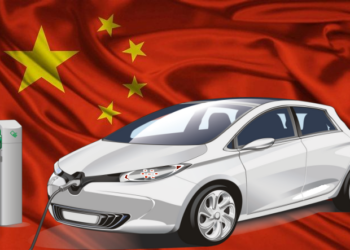Brussels – The duty war that has erupted between the EU and China does not seem likely to end soon. To the sanctions imposed a few days ago by Brussels (and reticently approved by the governments of the Twenty-Seven) on Chinese electric cars, Beijing has responded with counter-duties affecting imports of European brandy. Now, the Commission wants to bring its economic rival before the World Trade Organization (WTO).
When member states gave the green light last Friday (Oct. 4) to the EU executive’s proposed duties on the import of made-in-China e-cars, few expected that the People’s Republic would not respond in kind. So it did. On Tuesday (Oct. 8), Beijing announced new taxes on brandy imports from Europe, a move that hits the French industry in particular, the transalpine country being among the main exporters to the EU.
For Paris, this is pure and straightforward retaliation. The fact that a product also exported in large quantities by Germany was not targeted would indeed make one suspect that the Dragon wanted to reward Berlin for abstaining from the decision on duties on Chinese electric vehicles. But Beijing let it be known that this is simply an “anti-dumping measure” to protect domestic companies operating in the sector.
In Brussels, meanwhile, the Chinese counter-move was not welcomed. The European Commission “will vigorously contest at the WTO level China’s announced imposition of provisional anti-dumping measures on brandy imports from the EU,” reads a press release from the EU executive. “In parallel,” the note continues, “it will carefully consider all possibilities to offer appropriate support to producers” who have been affected by what is called an “unjustified decision.”
In fact, on Chinese car tariffs the Twenty-seven are deeply divided: five countries opposed, 12 abstained, and the rest, including Italy, voted in favour. Technically, since there was no qualified majority for a “yes” vote, the Commission’s proposal could go ahead, and a final decision is on the calendar for October 30. From the Berlaymont building, they say the College is always open to an “alternative solution,” provided the Chinese side is willing to enter into a “constructive negotiation” in good faith. Beijing’s move today could be an attempt to counterbalance the European headlong rush to sit at the negotiating table on an equal footing. We shall see. If anything is certain, it is that the issue is far from being solved.
English version by the Translation Service of Withub





